by Lisa Cooke | Feb 4, 2014 | Family History Library, Family History Podcast
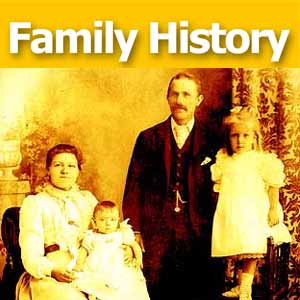
Originally published 2009
Republished February 4, 2014
[display_podcast]
Download the Show Notes for this Episode
Welcome to this step-by-step series for beginning genealogists—and more experienced ones who want to brush up or learn something new. I first ran this series in 2008. So many people have asked about it, I’m bringing it back in weekly segments.
Episode 17: Using Family History Centers, Part I
This episode is the first of a series in which we answer questions about Family History Centers (now also known as FamilySearch Centers), the regional satellite facilities of the main Family History Library in Salt Lake City, Utah. When I’m done with you, you won’t have a single excuse left for hesitating to use these wonderful family history research resources!
My very special guest is friend of the show Margery Bell, Assistant Director of the Oakland Family History Center in Oakland, California. Margery has over 35 years of experience working in Family History Centers. In our first segment she introduces us to the Family History Center and walks us step by step through the process for ordering and using microfilm. Then in our second segment, Margery discusses the wide range of resources beyond microfilm that you will find at both your local Family History Center and one of 14 larger Regional centers. In our final segment she digs in to all of the kinds of other genealogical resources we can find at Family History Centers. Even if you’ve already been to a Family History Center, you’re still going to learn some new things along the way!
Links
Find a Family History Center near you
Family History Library Online Catalog
by Lisa Cooke | Jan 29, 2014 | 01 What's New, Family History Library, FamilySearch, Libraries, Research Skills, RootsTech
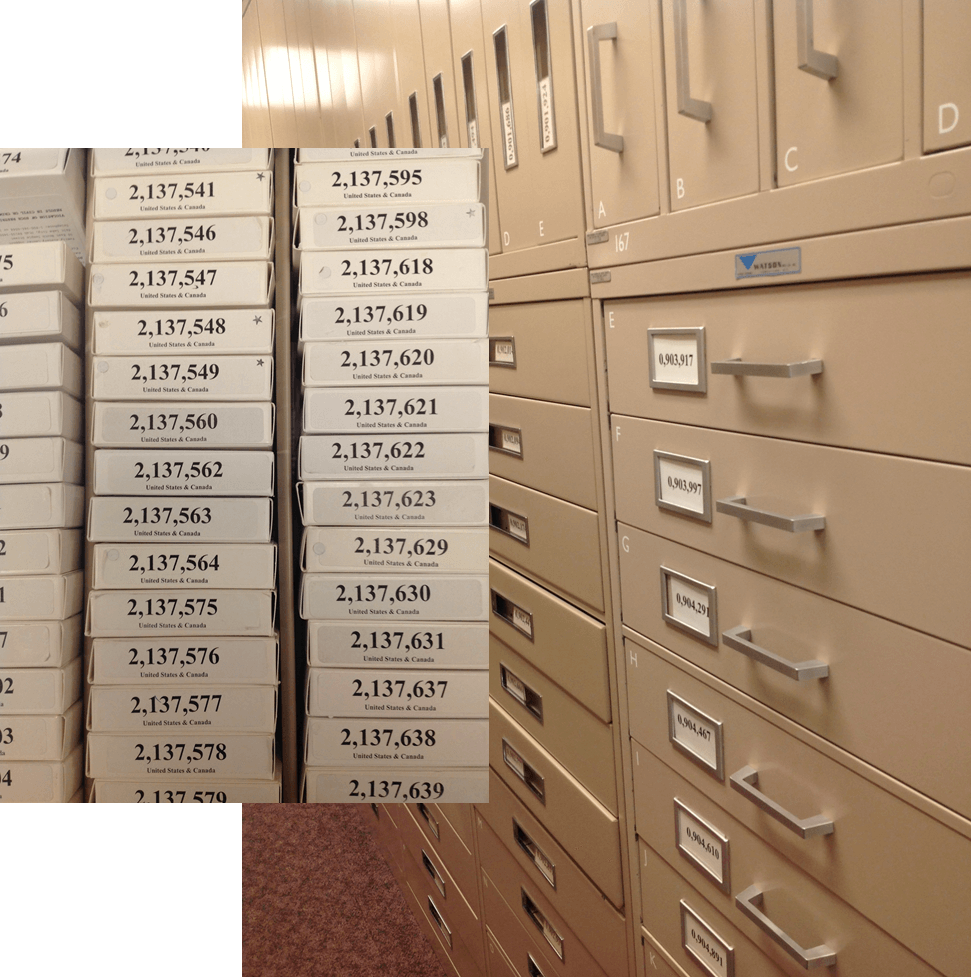
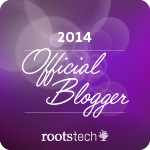 Whether you’re going to RootsTech next week or not, at some point in your genealogical research you’ll want to use the Family History Library (FHL). The FHL, located in Salt Lake City, Utah, USA, has 6.875 billion historical records on microfilm, which contain an estimated 20.6 billion names. That’s a lot of ancestors!
Whether you’re going to RootsTech next week or not, at some point in your genealogical research you’ll want to use the Family History Library (FHL). The FHL, located in Salt Lake City, Utah, USA, has 6.875 billion historical records on microfilm, which contain an estimated 20.6 billion names. That’s a lot of ancestors!
The FHL and its sponsor organization, FamilySearch International, are busy digitizing and indexing all those records, but it’s going to take some time. And some of those records may never be digitized because of publication rights limitations or other issues. So you should know how to access all those great microfilms!
Yesterday I republished Episode 16 of the original Family History: Genealogy Made Easy podcast. It features a great interview with Margery Bell on using the Family History Library. The show notes have updated tips on using the online catalog. Click here for some must-have tips on preparing for your visit. You’ll get a lot more out of your limited time in the library if you know exactly what information you’re looking for and where you’re going to look for it!
by Lisa Cooke | Jan 28, 2014 | Family History Podcast
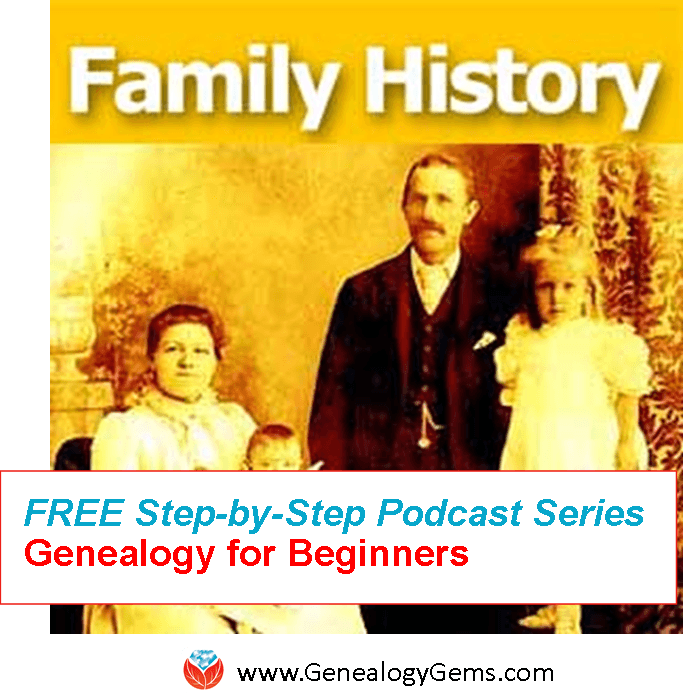
Listen to the Family History: Genealogy Made Easy podcast by Lisa Louise Cooke. It’s a great series for learning the research ropes and well as refreshing your skills.
Originally published 2009
Republished January 28, 2014
[display_podcast]
Download the Show Notes for this Episode
Welcome to this step-by-step series for beginning genealogists—and more experienced ones who want to brush up or learn something new. I first ran this series in 2008-2009. So many people have asked about it, I’m bringing it back in weekly segments.
Episode 16:
In our first segment we’re going to get acquainted with the largest repository of genealogy materials in the world: The Family History Library in Salt Lake City, Utah. It’s free and available to the public and I’m going to get you ready to make good use of it through the online Family History Library catalog. Click on the show notes link, above, to read some great updates since the episode aired on how to use the online catalog and growing collection of digital records.
Then in our second segment my guest is Don R. Anderson, Director of the Family History Library, who describes the evolving direction of the Family History Library and its host site, FamilySearch.org.
Links
FamilySearch
Family History Library Catalog
by Lisa Cooke | Jan 15, 2014 | 01 What's New, FamilySearch, Records & databases
Are you a FamilySearch indexer, or have you considered joining this worldwide volunteer effort? FamilySearch has just launched a new website that’s 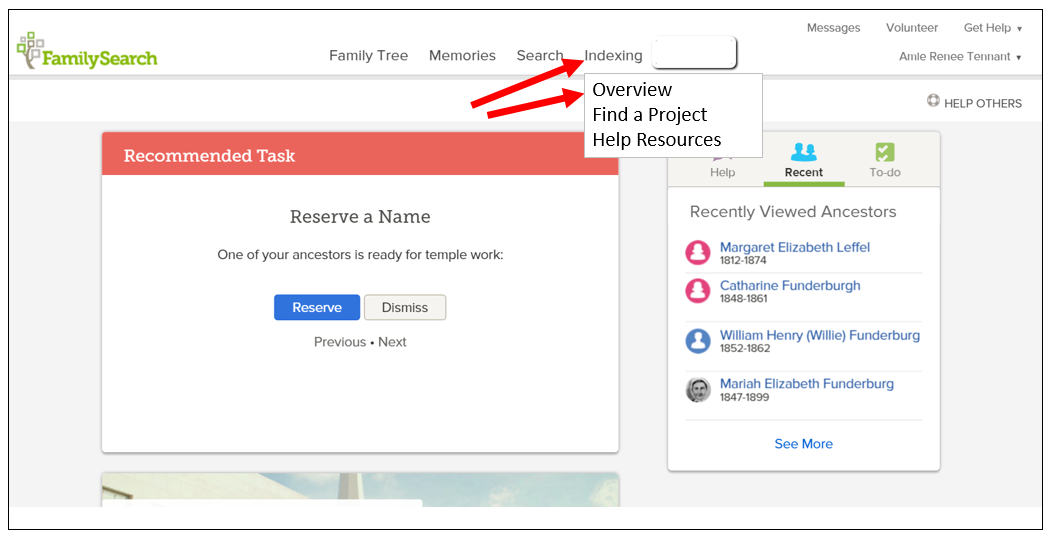 all about making indexing EASIER.
all about making indexing EASIER.
If you’re already an indexer, here are the highlights of the new site, according to FamilySearch:
- Getting started with indexing just got easier. With an easy-to-navigate Overview page and an all-new Get Started page, the new website is the perfect introduction to indexing.
- Looking for more indexing help? Check out the completely redesigned resource guide. Now called Help Resources, this page guides you to the help you need.
- Find projects you want faster. In the old indexing website, you had to scroll through over 200 projects, now you can click on an interactive map and filter the project list based on language and country.
But wait, there’s more! According to FamilySearch, “The change in the indexing website is just the first step in a total redesign and improvement of the indexing experience. The coming year will see the all-new indexing program become more integrated with FamilySearch.org, bringing indexing to your Internet browser, enabling indexing on tablet devices, and much more.”
They plan to announce more at RootsTech next month, where there will be a session on FamilySearch indexing and where the FamilySearch booth will have hands-on opportunities to try out the new system. (Haven’t registered for RootsTech yet? Register here! Early-bird pricing has been extended until Monday, Jan. 27.)
 P.S. WHY INDEX?
P.S. WHY INDEX?
Indexers for FamilySearch have already generated more than a billion names that are free to search at FamilySearch.org. The company’s press release points out that improvements to the indexing site have in the past accelerated the pace of indexing and they expect that to happen over the coming year, too.
Here’s my favorite tip for the researcher who wants a little more out of indexing for themselves. Use indexing to become more familiar with different record types. Do a few batches of naturalization records, border crossings, church registers, etc., from different places or time periods, and you’ll quickly become more familiar with that record type. You’ll also become more adept at reading old handwriting, picking out the genealogical details from the legalese and other skills that will help you in your own research.
by Lisa Cooke | Dec 6, 2013 | 01 What's New, FamilySearch, RootsTech
The all-star lineup of keynote speakers has been announced for RootsTech 2014. They will inspire everyone to discover and share the stories that connect our families-past, present, and future.
Ree Drummond, blogger and author, The Pioneer Woman
Ree is an award-winning blogger and New York Times bestselling author. Her popular website, The Pioneer Woman, was founded in 2006 and showcases her cooking, photography, and stories about country life.
Annelies van den Belt, CEO, DC Thompson Family History – Annelies is changing the way digital genealogical records are published and organized. Her company hosts 1.8 billion genealogical records across a family of online brands.
Judy Russell, blogger and professional genealogist, The Legal Genealogist – Judy is a certified genealogist with a law degree who enjoys helping others understand the interplay between genealogy and the law. She blogs and maintains The Legal Genealogist website.
Dr. Spencer Wells, project director, National Geographic Genographic Project – The indiana Jones of genetics, Dr. Wells has traveled the world and captured the DNA of more than a half-million people to tell the story of the human journey.
Todd Hansen, TV host, The Story Trek – Behind every door there is a story. This TV series consists of random door-to-door interviews to discover who lives behind those doors and their real stories.
Stephanie Nielsen, blogger and author, NieNie Dialogues – Stephanie’s story of survival and recovery after a plane crash captured the hearts of the nation. She has inspired others through interviews with Oprah Winfrey and on the Today Show.
 The fourth annual RootsTech conference, hosted by FamilySearch, will be held February 6-8, 2014 at the Salt Palace in Salt Lake City, Utah. In addition to renowned keynote speakers, the conference features over 200 classes, hundreds of booths in a huge Expo Hall, and evening events.
The fourth annual RootsTech conference, hosted by FamilySearch, will be held February 6-8, 2014 at the Salt Palace in Salt Lake City, Utah. In addition to renowned keynote speakers, the conference features over 200 classes, hundreds of booths in a huge Expo Hall, and evening events.





 all about making indexing EASIER.
all about making indexing EASIER. P.S. WHY INDEX?
P.S. WHY INDEX?


